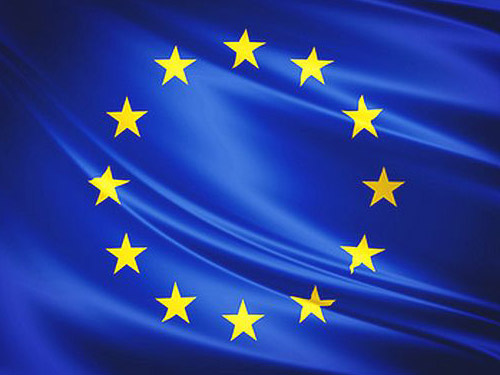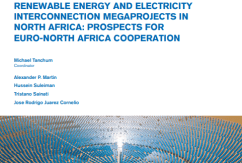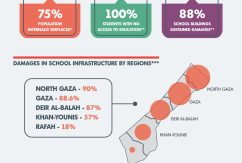EIDHR 2019 Global Call for Proposals

The global objective of this call for proposals is to support civil society in protection and promotion of democracy, human rights and fundamental freedoms worldwide.
The specific objectives and priorities under each lot are as follows:
Lot 1 – Business and Human Rights
The specific objective of lot 1 is to support and empower civil society to collaborate with business and investment actors in the mitigation, prevention and remediation of adverse impacts of business activities on human rights and, where needed, hold them accountable, by in particular two sub-objectives:
- supporting community-based actors and social partners to set up human rights due diligence mechanisms and push forward multi-stakeholder engagement with the objective of promoting accountability and good corporate governance;
- improving access to justice for victims of corporate abuses by supporting those victims through the provision of legal advice and representation in order to bring cases before national jurisdictions and/or by developing non-State non-judicial grievance mechanisms with the private sector.
The priorities of lot 1 are:
- Give a voice to, help provide access to remedies, and empower victims of human rights corporate abuses with a specific focus on people living in the most vulnerable situations, women, children, youth, indigenous peoples, human rights and environmental defenders, civil society actors, internally displaced people;
- Broaden already established partnerships or forms of collaboration between business and investment actors, national authorities and civil society actors working on achieving common human rights objectives;
- Integrate a strong gender perspective in the methodology of actions, including gender equality and women’s empowerment. Whenever possible, gender indicators shall be developed for all target groups and data collection shall be gender disaggregated.
Actions must respond to at least one of the specific sub-objective and focus on at least one of the following themes:
- Workers‘ rights and decent work conditions, forced labour and child labour;
- Sectors covered by EU mandatory legislation (e.g.: EU Regulation on Conflict Minerals, EU Timber Regulation, illegal, unreported and unregulated fishing (IUU) EU regulation);
- Sustainable business in respect to rights to a clean and healthy environment, rights to access to natural resources such as water and land, prevention of land grabbing and deforestation, respect to traditional land use rights and local livelihoods of land rights;
- Responsible business practices in relation to protecting civic freedoms and human rights and environment defenders.
Lot 2 – Fight against torture and other ill-treatment
The specific objective of lot 2 is to provide support to civil society projects by contributing to the prohibition and prevention of torture, ensuring accountability for torture and other ill treatment outside the EU, in particular by supporting civil society in the implementation of existing legislation, court rulings, regional statutes, and other forms of regulations on torture and other cruel, inhuman or degrading treatment or punishment.
The priority of lot 2 is to foster coalitions and build synergies between civil society organisations and different non-state actors (such as national preventive mechanisms (NPMs), bar associations, etc.), and state actors (such as justice actors, penitentiary authorities, law enforcement officials, etc.) in the county(ies) covered by the proposal.
Lot 3 – Democratic accountability
The specific objective of lot 3 is to strengthen the role of civil society in contributing to democratic accountability by, inter alia, monitoring the work of state institutions, scrutinising the formulation and implementation of public policies, controlling the use of public expenditure, and raising awareness and advocating for the role of oversight institutions, notably parliaments, ombudsperson institutions, courts of auditors, audit bureaus etc. To this aim, a peer-to-peer approach is encouraged between civil society organisations conducting similar work.
The priorities of lot 3 are:
- Strengthening parliamentary monitoring organisations (PMOs) in the field of accountability, including anti-corruption;
- Strengthening organisations that monitor, raise awareness of, and demand strengthening of Ombudsmen or corresponding legislative committees, whistle-blower protection mechanisms, courts of auditors, audit bureaus and/or similar institutions and other oversight bodies;
- Strengthening organisations that review and scrutinise the implementation of public policies and promoting transparency and accountability of budget processes, including:
- Encouraging civic engagement and participation in policy review and budget processes by citizens at both national and sub-national levels, prioritising measures focusing on enhancing, in particular, the participation of disadvantaged and/or under-represented groups, such as poor households, women, youth, disabled people by creating an enabling environment for their participation;
- Monitoring and evaluating the levels of participation of different groups in different stages of the policy formulation and budget cycle, and setting targets for participation and response to the issues they raise.
- Strengthening organisations that promote accountability and/or contribute towards the prevention and fight against corruption, including:
- Facilitating mobilisation of civil society actors demanding government responsiveness and reforms, e.g. access to timely and transparent information, credible and effective sanctions for government inaction;
- Monitoring and advocating for the effective and impartial application of the rule of law, including application of administrative and criminal sanctions, in relation to anti-corruption measures;
- Providing capacity building, skills development, and networking capability to facilitate collaboration between relevant local and regional change agents and watchdog organisations with similar mandates, and also those of other sectors that are relevant for anti-corruption mainstreaming;
- Increasing the capacity of media outlets to investigate and report on corruption cases, as well as the collaboration with civil society and other change agents.
- Promoting use of new technologies in the oversight of state institutions, by reinforcing the NGO capacities to use digital tools.
The action must address all of the above priorities. This aspect will be evaluated in Section 1.1 of the Concept Note evaluation grid.
Other Opportunities





































